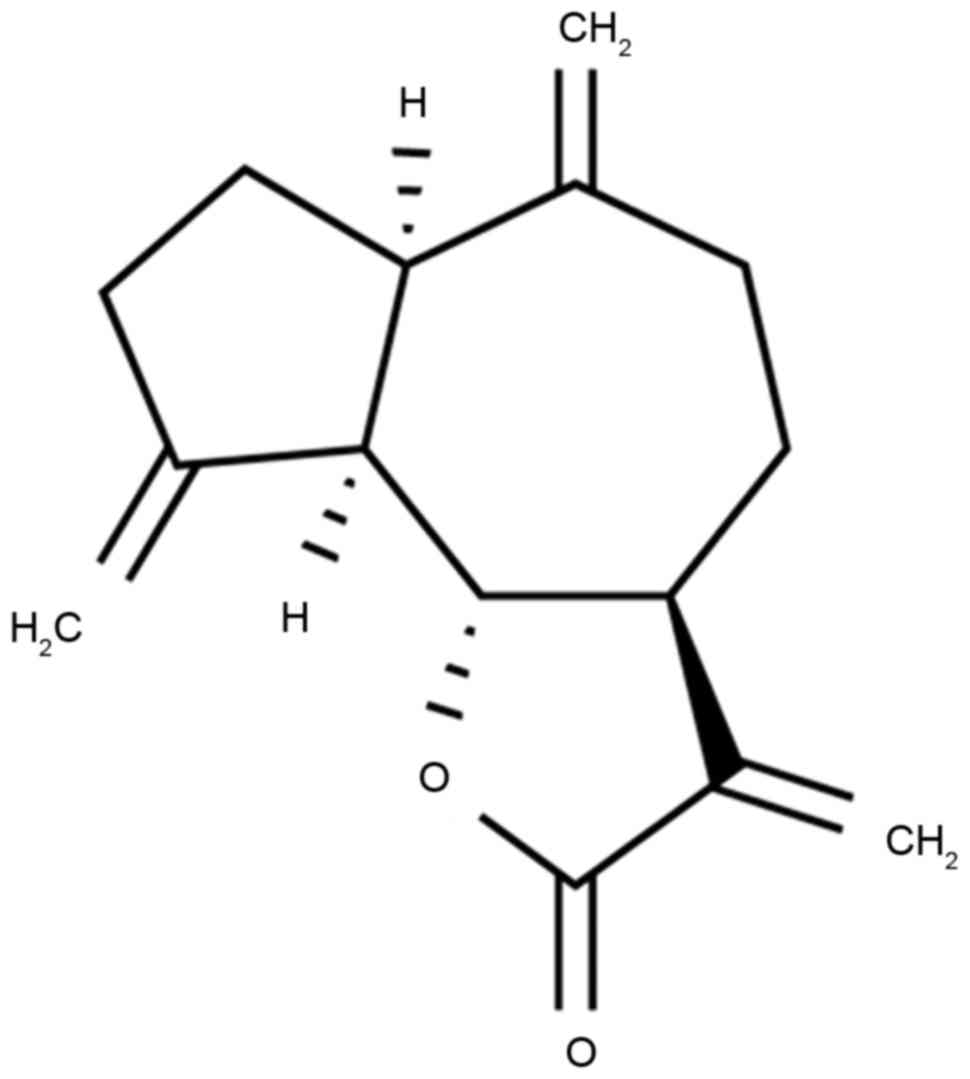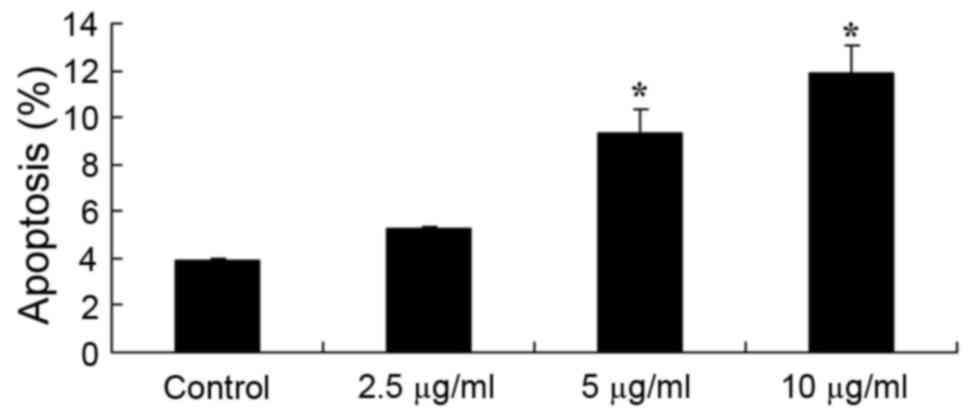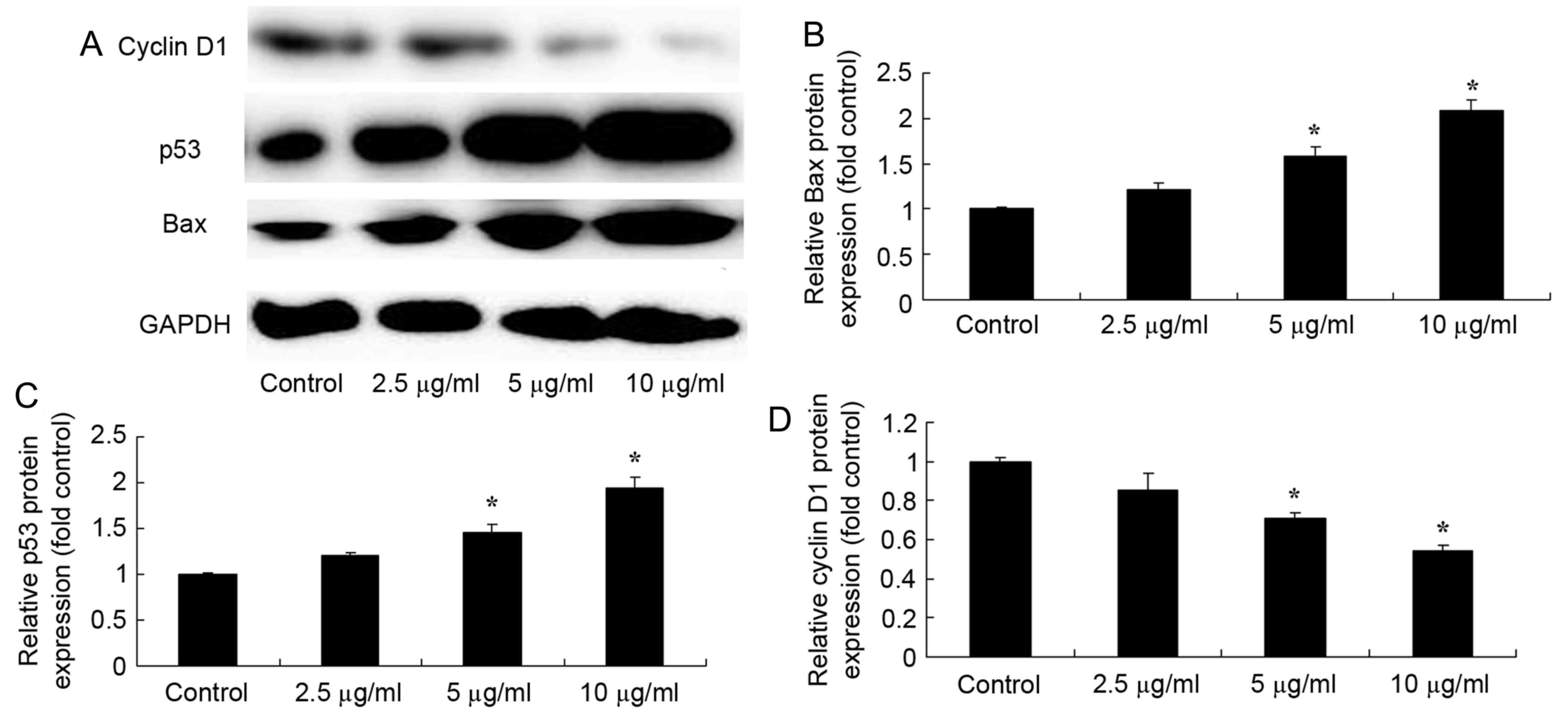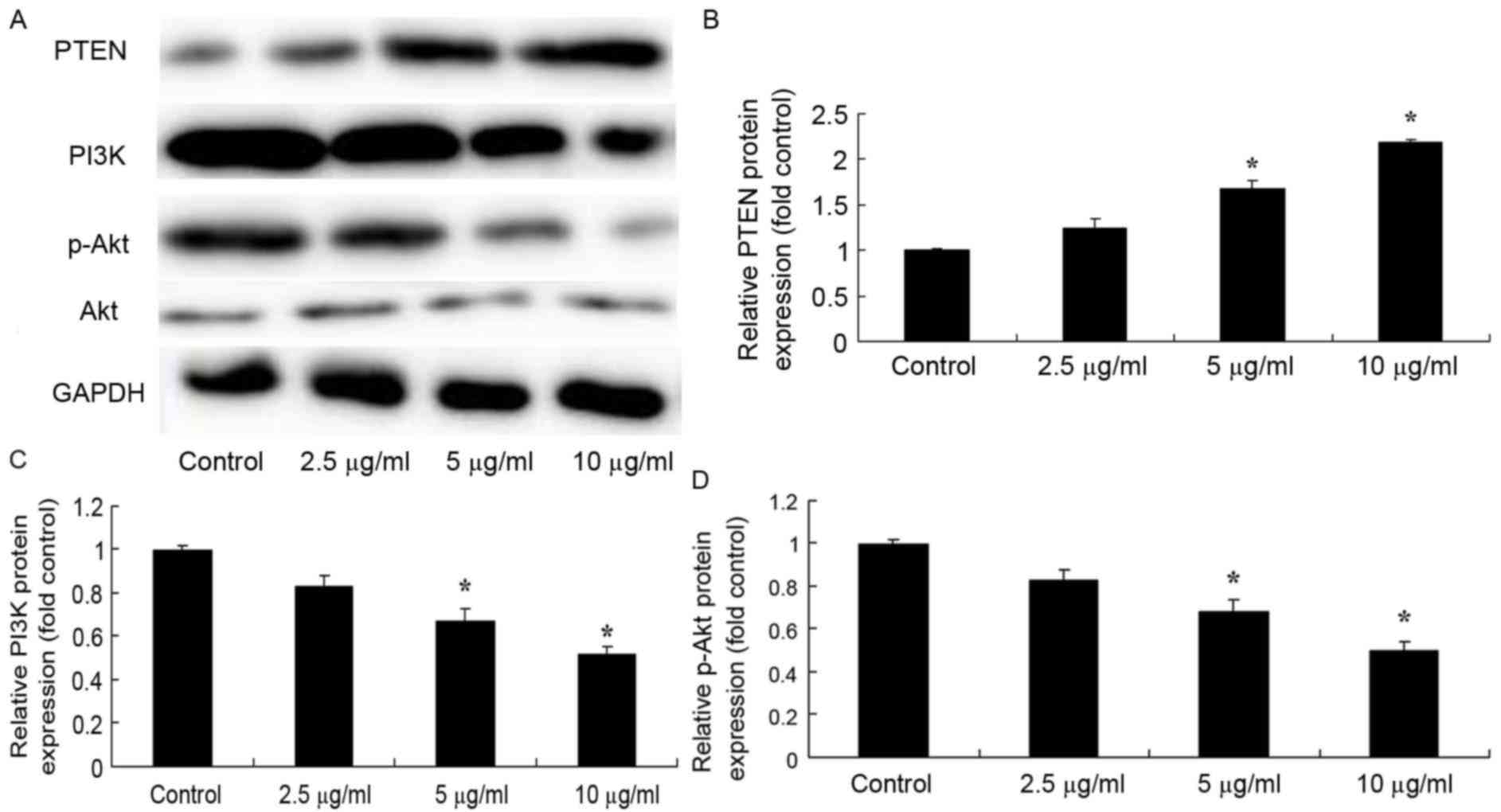|
1
|
Wang X, Ha T, Hu Y, Lu C, Liu L, Zhang X,
Kao R, Kalbfleisch J, Williams D and Li C: MicroRNA-214 protects
against hypoxia/reoxygenation induced cell damage and myocardial
ischemia/reperfusion injury via suppression of PTEN and Bim1
expression. Oncotarget. 7:86926–86936. 2016. View Article : Google Scholar : PubMed/NCBI
|
|
2
|
Li D, Liu J, Guo B, Liang C, Dang L, Lu C,
He X, Cheung HY, Xu L, Lu C, et al: Osteoclast-derived exosomal
miR-214-3p inhibits osteoblastic bone formation. Nat Commun.
7:108722016. View Article : Google Scholar : PubMed/NCBI
|
|
3
|
Chu Q, Sun Y, Cui J and Xu T: Inducible
microRNA-214 contributes to the suppression of NF-κB-mediated
inflammatory response via targeting myd88 gene in fish. J Biol
Chem. 292:5282–5290. 2017. View Article : Google Scholar : PubMed/NCBI
|
|
4
|
Song X, Wang CT and Geng XH: MicroRNA-29a
promotes apoptosis of monocytes by targeting STAT3 during sepsis.
Genet Mol Res. 14:13746–13753. 2015. View Article : Google Scholar : PubMed/NCBI
|
|
5
|
Hyun J, Choi SS, Diehl AM and Jung Y:
Potential role of Hedgehog signaling and microRNA-29 in liver
fibrosis of IKKβ-deficient mouse. J Mol Histol. 45:103–112. 2014.
View Article : Google Scholar : PubMed/NCBI
|
|
6
|
Wang ZH, Zhang JL, Duan YL, Zhang QS, Li
GF and Zheng DL: MicroRNA-214 participates in the neuroprotective
effect of Resveratrol via inhibiting α-synuclein expression in
MPTP-induced Parkinson's disease mouse. Biomed Pharmacother.
74:252–256. 2015. View Article : Google Scholar : PubMed/NCBI
|
|
7
|
Li X, Kong M, Jiang D, Qian J, Duan Q and
Dong A: MicroRNA-150 aggravates H2O2-induced cardiac myocyte injury
by down-regulating c-myb gene. Acta Biochim Biophys Sin (Shanghai).
45:734–741. 2013. View Article : Google Scholar : PubMed/NCBI
|
|
8
|
Bagge A, Clausen TR, Larsen S, Ladefoged
M, Rosenstierne MW, Larsen L, Vang O, Nielsen JH and Dalgaard LT:
MicroRNA-29a is up-regulated in beta-cells by glucose and decreases
glucose-stimulated insulin secretion. Biochem Biophys Res Commun.
426:266–272. 2012. View Article : Google Scholar : PubMed/NCBI
|
|
9
|
Yang K, Cao W, Hao X, Xue X, Zhao J, Liu
J, Zhao Y, Meng J, Sun B, Zhang J and Liang XJ: Metallofullerene
nanoparticles promote osteogenic differentiation of bone marrow
stromal cells through BMP signaling pathway. Nanoscale.
5:1205–1212. 2013. View Article : Google Scholar : PubMed/NCBI
|
|
10
|
Sun Y, Lu CM, Song Z, Xu KK, Wu SB and Li
ZJ: Expression and regulation of microRNA-29a and microRNA-29c in
early diabetic rat cataract formation. Int J Ophthalmol.
9:1719–1724. 2016.PubMed/NCBI
|
|
11
|
Dippel DW, Majoie CB, Roos YB, van der
Lugt A, van Oostenbrugge RJ, van Zwam WH, Lingsma HF, Koudstaal PJ,
Treurniet KM, van den Berg LA, et al: Influence of device choice on
the effect of intra-arterial treatment for acute ischemic stroke in
MR CLEAN (multicenter randomized clinical trial of endovascular
treatment for acute ischemic stroke in the Netherlands). Stroke.
47:2574–2581. 2016. View Article : Google Scholar : PubMed/NCBI
|
|
12
|
Kawakami S, Tahara Y, Noguchi T, Yagi N,
Kataoka Y, Asaumi Y, Nakanishi M, Goto Y, Yokoyama H, Nonogi H, et
al: Time to reperfusion in ST-segment elevation myocardial
infarction patients with vs. Without pre-hospital mobile
telemedicine 12-lead electrocardiogram transmission. Circ J.
80:1624–1633. 2016. View Article : Google Scholar : PubMed/NCBI
|
|
13
|
Hill MD, Demchuk AM, Goyal M, Jovin TG,
Foster LD, Tomsick TA, von Kummer R, Yeatts SD, Palesch YY and
Broderick JP: IMS3 Investigators: Alberta stroke program early
computed tomography score to select patients for endovascular
treatment: Interventional management of stroke (IMS)-III trial.
Stroke. 45:444–449. 2014. View Article : Google Scholar : PubMed/NCBI
|
|
14
|
Zhu Z, Fu Y, Tian D, Sun N, Han W, Chang
G, Dong Y, Xu X, Liu Q, Huang D and Shi FD: Combination of the
immune modulator fingolimod with alteplase in acute ischemic
stroke: A pilot trial. Circulation. 132:1104–1112. 2015. View Article : Google Scholar : PubMed/NCBI
|
|
15
|
Sun X, Kang H, Yao Y, et al: Dehydrocostus
lactone suppressed the proliferation, migration, and invasion of
colorectal carcinoma through the downregulation of eIF4E
expression. Anticancer Drugs. 26:641–648. 2015.PubMed/NCBI
|
|
16
|
Livak KJ and Schmittgen TD: Analysis of
relative gene expression data using real-time quantitative PCR and
the 2(-Delta Delta C(T)) method. Methods. 25:402–408. 2001.
View Article : Google Scholar : PubMed/NCBI
|
|
17
|
Li R, Liu J, Li Q, Chen G and Yu X:
miR-29a suppresses growth and metastasis in papillary thyroid
carcinoma by targeting AKT3. Tumour Biol. 37:3987–3996. 2016.
View Article : Google Scholar : PubMed/NCBI
|
|
18
|
Zhou H, Guo W, Zhao Y, Wang Y, Zha R, Ding
J, Liang L, Yang G, Chen Z, Ma B and Yin B: MicroRNA-135a acts as a
putative tumor suppressor by directly targeting very low density
lipoprotein receptor in human gallbladder cancer. Cancer Sci.
105:956–965. 2014. View Article : Google Scholar : PubMed/NCBI
|
|
19
|
Fang Y, Shen H, Li H, Cao Y, Qin R, Long
L, Zhu X, Xie C and Xu W: miR-106a confers cisplatin resistance by
regulating PTEN/Akt pathway in gastric cancer cells. Acta Biochim
Biophys Sin (Shanghai). 45:963–972. 2013. View Article : Google Scholar : PubMed/NCBI
|
|
20
|
Li H, Xu H, Shen H and Li H: microRNA-106a
modulates cisplatin sensitivity by targeting PDCD4 in human ovarian
cancer cells. Oncol Lett. 7:183–188. 2014. View Article : Google Scholar : PubMed/NCBI
|
|
21
|
Rothschild SI, Gautschi O, Batliner J,
Gugger M, Fey MF and Tschan MP: MicroRNA-106a targets autophagy and
enhances sensitivity of lung cancer cells to Src inhibitors. Lung
Cancer. 107:73–83. 2017. View Article : Google Scholar : PubMed/NCBI
|
|
22
|
Chen L, Zhang F, Sheng XG, Zhang SQ, Chen
YT and Liu BW: MicroRNA-106a regulates phosphatase and tensin
homologue expression and promotes the proliferation and invasion of
ovarian cancer cells. Oncol Rep. 36:2135–2141. 2016. View Article : Google Scholar : PubMed/NCBI
|
|
23
|
Ku SK and Bae JS: Antithrombotic
activities of wogonin and wogonoside via inhibiting platelet
aggregation. Fitoterapia. 98:27–35. 2014. View Article : Google Scholar : PubMed/NCBI
|
|
24
|
Ge X, Leung TM, Arriazu E, Lu Y, Urtasun
R, Christensen B, Fiel MI, Mochida S, Sørensen ES and Nieto N:
Osteopontin binding to lipopolysaccharide lowers tumor necrosis
factor-α and prevents early alcohol-induced liver injury in mice.
Hepatology. 59:1600–1616. 2014. View Article : Google Scholar : PubMed/NCBI
|
|
25
|
Yang SD, Ma L, Yang DL and Ding WY:
Combined effect of 17β-estradiol and resveratrol against apoptosis
induced by interleukin-1β in rat nucleus pulposus cells via
PI3K/Akt/caspase-3 pathway. PeerJ. 4:e16402016. View Article : Google Scholar : PubMed/NCBI
|
|
26
|
Chen C, Guo D and Lu G: Wogonin protects
human retinal pigment epithelium cells from LPS-induced barrier
dysfunction and inflammatory responses by regulating the TLR4/NF-κB
signaling pathway. Mol Med Rep. 15:2289–2295. 2017. View Article : Google Scholar : PubMed/NCBI
|
|
27
|
Jiang E, Sun X, Kang H, et al:
Dehydrocostus Lactone Inhibits Proliferation, Antiapoptosis, and
Invasion of Cervical Cancer Cells Through PI3K/Akt Signaling
Pathway. Int J Gynecol Cancer. 25:1179–1186. 2015. View Article : Google Scholar : PubMed/NCBI
|




















